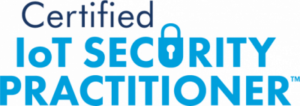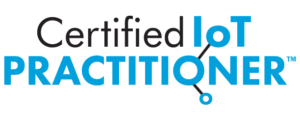Trainings
EMERGING TECHNOLOGY CERTIFICATIONS
As the global purveyor of vendor-neutral, emerging technology certifications, and micro-credentials, CertNexus understands that the success of an organization depends upon all its people. We build certifications and micro-credentials for your entire staff encompassing three essential concepts:
THINK. BUILD. SECURE.
As the global purveyor of vendor-neutral, emerging technology certifications, and micro-credentials, CertNexus understands that the success of an organization depends upon all its people. We build certifications and micro-credentials for your entire staff encompassing three essential concepts:
THINK. BUILD. SECURE.
DATA SCIENCE
Data is plentiful resource. Organizations who are able to select, manipulate, analyze, predict and derive value from the data will gain a significant edge. Understanding what Data Science is, how it can impact
Read moreARTIFICIAL INTELLIGENCE
The number of enterprises implementing artificial intelligence (AI) grew 270% in the past four years and tripled in the past year, according to the Gartner 2019 CIO Survey. Data is plentiful resource.
Read moreINTERNET OF THINGS
The Internet of Things (IoT) is pervasive and it’s not just about connected home devices or smartwatches anymore. It’s being applied in myriad ways in all different industries – whether it is in the predictive
Read moreFIND THE RIGHT CERTIFICATION OR CREDENTIAL FOR YOU
FIND THE RIGHT CERTIFICATION OR CREDENTIAL FOR YOU

ETBIZ
ETBIZ is a combination of three CertNexus credentials (AIBIZ, DSBIZ, and IoTBIZ) which cover the most often used technologies to generate data, extract insights from data, and leverage data to predict future outcomes. Upon successful completion of this credentialing assessment candidates will earn the capstone ETBIZ credential and receive a badge which can be posted on social media platforms to identify your dedication to emerging technologies. Learn More Here

Certified Data Science Practitioner
Certified Data Science Practitioner (CDSP) planned for release in Q1 2021. Learn More Here

Certified Ethical Emerging Technologist
Certified Ethical Emerging Technologist™ (CEET) is designed for individuals seeking to demonstrate a vendor neutral, cross-industry, and multidisciplinary understanding of applied technology ethics that will enable them to navigate the processes by which ethical integrity may be upheld within emerging data-driven technology fields such as artificial intelligence (AI)/machine learning, Internet of Things (IoT), and data science. Learn More Here

Certified Artificial Intelligence Practitioner
Certified Artificial Intelligence Practitioner (CAIP) and the corresponding training program is designed for information technology practitioners entering the field of artificial intelligence who are seeking to build a vendor-neutral, cross-industry foundational knowledge of AI concepts, technologies, algorithms, and applications that will enable them to become a capable practitioner in a wide variety of AI-related job functions. Learn More Here

AIBIZ
AIBIZ offers business leaders, project managers, and other stakeholders with a streamlined course and associated credential to drive their AI strategy. AIBIZ candidates will learn AI concepts, approaches to machine learning and deep learning, fundamentals of AI implementations, and the impact of AI including business use cases. Learn More Here

Certified Internet of Things Security Practitioner
Certified Internet of Things Security Practitioner (CIoTSP) is designed for practitioners who are seeking to demonstrate a vendor-neutral, cross-industry skill set that will enable them to design, implement, operate, and/or manage a secure IoT ecosystem. Learn More Here

Certified Internet of Things Practitioner
Certified Internet of Things Practitioner (CIoTP) provides an understanding of how IoT components work with other systems that IT professionals typically have more experience working with – such as networks, cloud computing, applications running on servers, desktop computers, and mobile devices. Candidates will learn general strategies for planning, designing, developing, implementing, and maintaining an IoT system through various case studies and by assembling and configuring an IoT device to work in a sensor network. CIoTP has been developed in compliance with ANSI/ISO/IEC 17024 standards. Learn More Here

IoTBIZ
IoTBIZ offers business leaders a streamlined course and associated credential to open collaboration and drive informed business decisions for their IoT strategy. IoTBIZ candidates will learn IoT terminology to understand the components of IoT infrastructure, uncover challenges for consideration, and discover the impact that IoT has on their organization. Learn More Here

CyberSec First Responder
CyberSec First Responder (CFR) is a comprehensive certification designed to validate the knowledge and skills required to protect critical information systems before, during, and after an incident. This exam will certify that candidates have the knowledge, and abilities to combat the changing threat landscape and are able to assess risks/vulnerabilities, acquire data, perform analysis, continuously communicate, determine scope, recommend remediation actions, and accurately report results. CFR has been developed in complianc with ANSI/ISO/IEC 17024 standards and is approved by the U.S. Department of Defense (DoD) to fulfill Directive 8570/8140 requirements.Learn More Here

Cyber Secure Coder
With Cyber Secure Coder (CSC), candidates will learn about vulnerabilities that undermine security, and how to identify and remediate them in projects. Also learn general strategies for dealing with security defects and misconfiguration, how to design software to deal with the human element in security, and how to incorporate security into all phases of development.Learn More Here

IRBIZ
IRBIZ covers incident response methods and procedures which are taught in alignment with industry frameworks such as US-CERT’s NCISP (National Cyber Incident Response Plan), and Presidential Policy Directive (PPD) 41 on Cyber Incident Coordination Policy. It is ideal for candidates who have been tasked with managing compliance with state legislation and other regulatory requirements regarding incident response, and for executing standardized responses to such incidents. Learn More Here

CyberSAFE
CyberSAFE™ will enable candidates to identify the most common risks involved in using conventional, mobile, and cloud technologies, as well as how to protect themselves and organizations from cyber threats. Learn More Here